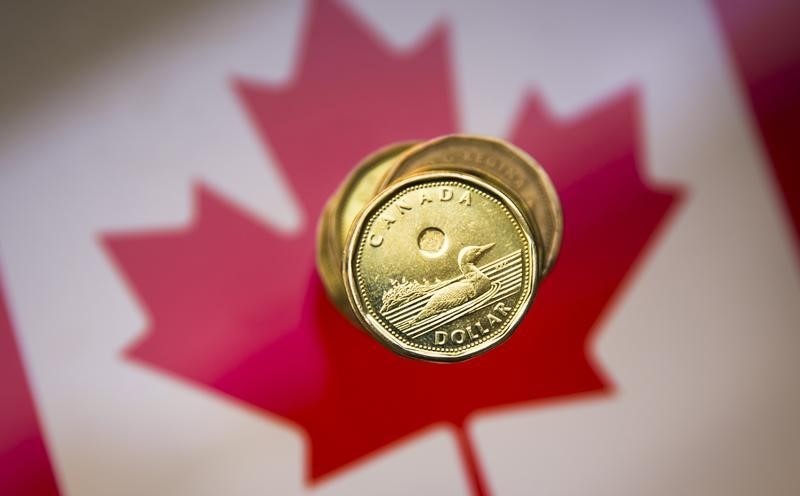* Canadian dollar at C$1.2737, or 78.51 U.S. cents
* Loonie posts strongest since Feb. 27 at C$1.2732
* Canada adds 32,300 jobs in March
* Bond prices mixed across flatter yield curve
By Fergal Smith
TORONTO, April 6 (Reuters) - The Canadian dollar rose to a five-week high against its U.S. counterpart on Friday as data showing a stronger-than-expected increase in domestic jobs offset a renewed trade spat between the United States and China.
Canada created 32,300 jobs in March, Statistics Canada said, topping economists' forecasts for an increase of 20,000. Full-time jobs rose by 68,300, more than recovering from February's decline. did see an initial jump in the Canadian dollar, partly because of a bit of disappointment in the U.S. (jobs) report initially and a nice headline on the Canadian number," said Doug Porter, chief economist at BMO Capital Markets. "I don't think it meaningfully changed the outlook for the Bank of Canada."
The central bank has raised interest rates three times since July. But money markets continued to see chances of another hike by May at less than 50 percent after the data. BOCWATCH
China warned it would fight back "at any cost" with fresh trade measures if the United States continues on its path of protectionism, hours after President Donald Trump threatened to slap tariffs on an additional $100 billion in Chinese goods. fell on fears that the tit-for-tat tariffs could spiral into a trade war. Canada's commodity-linked economy could be hurt if global trade slows.
At 9:52 a.m. EDT (1352 GMT), the Canadian dollar CAD=D4 was trading 0.1 percent higher at C$1.2737 to the greenback, or 78.51 U.S. cents. The currency touched its strongest since Feb. 27 at C$1.2732.
The loonie is set to advance over the coming year, helped by improved prospects for a revamped NAFTA trade deal, a Reuters poll of currency strategists showed. U.S. dollar .DXY fell on Friday after a report showed the U.S. economy in March created the fewest jobs in six months, although losses were limited by a pickup in wage gains. price of oil, one of Canada's major exports, slipped on trade tensions. U.S. crude CLc1 prices were down 0.4 percent to $63.30 a barrel. government bond prices were mixed across a flatter yield curve, with the two-year CA2YT=RR down 1 Canadian cent to yield 1.816 percent and the 10-year CA10YT=RR rising 2 Canadian cents to yield 2.179 percent.
The gap between Canada's 2-year yield and its U.S. equivalent narrowed by 2.8 basis points to a spread of -47 basis points.
